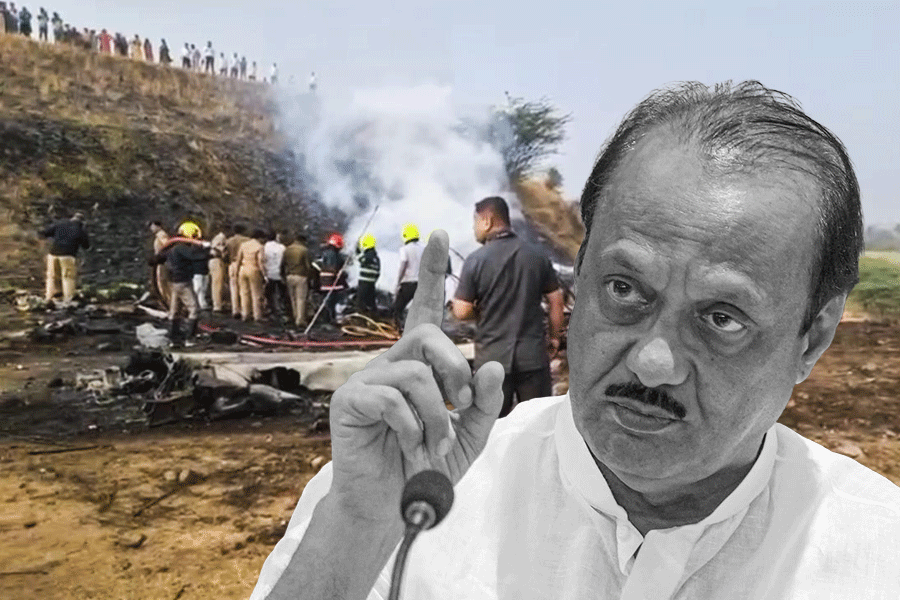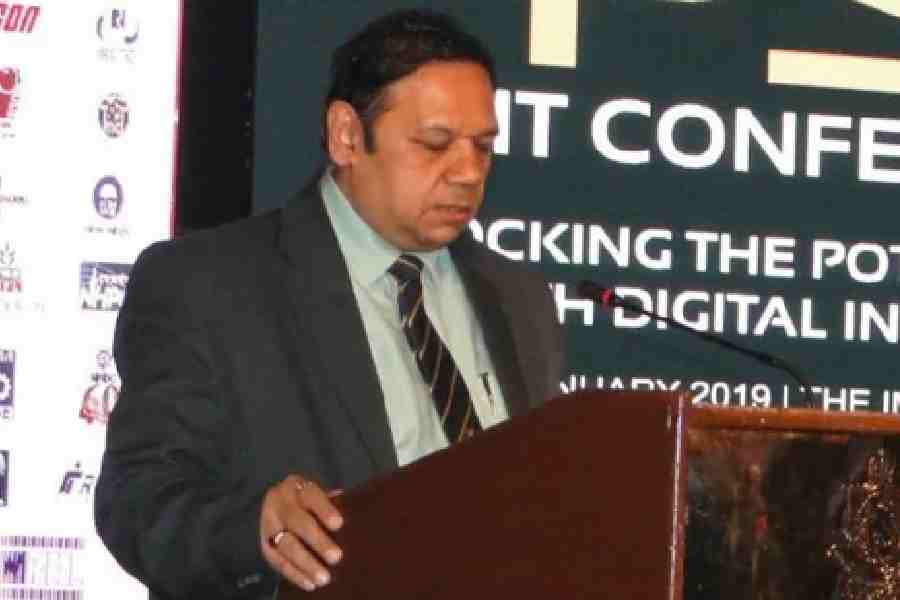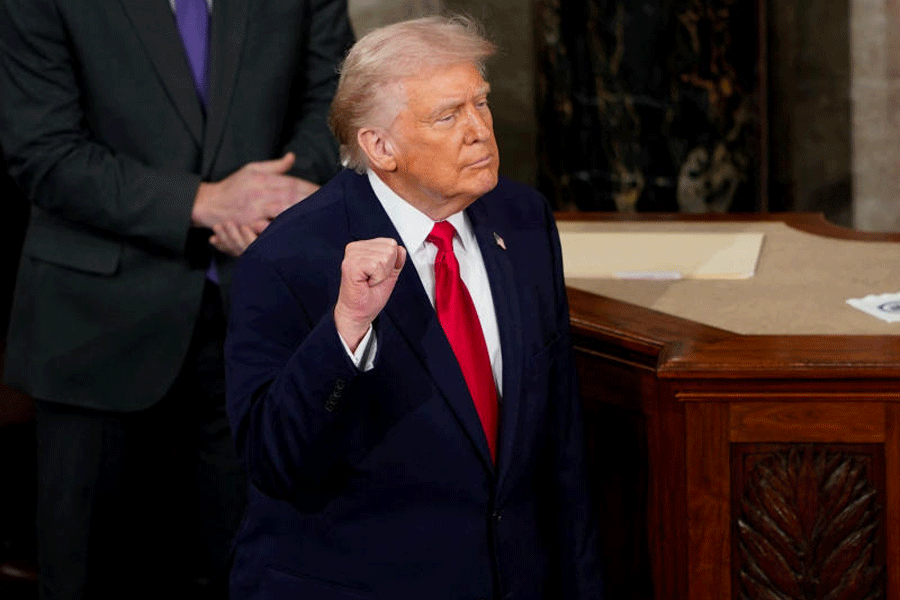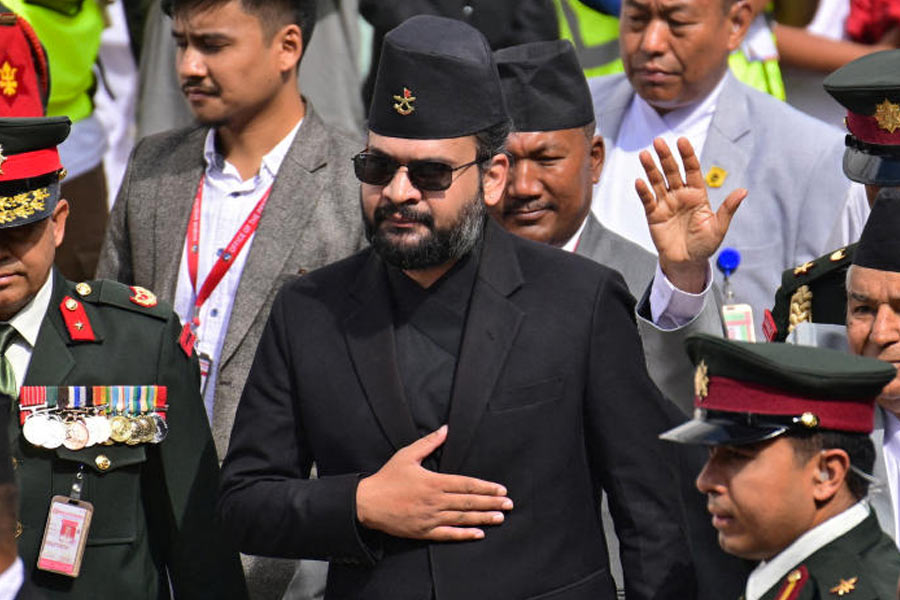Shillong, July 30: Protesters took out a rally here today to point out the demerits of the National Green Tribunal order, saying the issue of starvation comes first as far as banning of coal mining is concerned.
Thousands of people from various districts, including the coal-rich Jaintia hills districts, participated in the march organised by the Movement for Indigenous People’s Rights and Livelihoods (MIPRL), Meghalaya, to protest against the tribunal’s decision.
The protesters, armed with black flags and placards which lambasted the NGT, showed solidarity in their demand for withdrawal of the ban two days before the hearing by the tribunal on its interim order issued in April.
The tribunal bench, comprising chairperson Justice Swatanter Kumar and expert member Ranjan Chatterjee, will hold its sitting here on August 1 and 2.
On April 17, the tribunal passed an interim order banning “rat-hole” coal mining in Meghalaya. During its hearing on June 9 here the tribunal had only allowed transportation of extracted coal dumped in the open.
The protesters assembled at the Polo Ground before taking out the silent march through various roads in the city, past the Raj Bhavan, St Anthony’s College and Fourth Furlong. The march culminated at the Polo Ground.
“We are ignorant about the benefits from the ban on coal mining but what we know is that the ban has been like a dark cloud covering our state, bringing a lot of misery to people,” said a woman who participant. “Our daily earnings comes from bringing coal kept near the coal pits to a storage area. If this ban continues, we will die of hunger as it has affected everyone from labourers and mine owners to transporters,” the woman said.
Several other women claimed that after the coal mining ban, many parents could not afford to send their wards to school.
The protesters also denied that water bodies were getting polluted because of coal mining.
“Coal mining has been taken up in our area (Jaintia hills) for decades and it cannot be totally blamed for pollution of water bodies,” a protester said.
While various social organisations and pressure groups are demanding anti-influx mechanisms, the ban on coal mining has forced mass exodus of migrant labourers from Nepal and Bangladesh and outside the state, engaged in hazardous mining areas.
The ban on coal mining was a step taken by the NGT to address issues related to the safety of environment and people and came as a wake up call to the government, miners and mine owners.
Lambasting the tribunal, the placards read: “No NGT in Meghalaya, It’s a Sixth Schedule area, The NGT is hurt because fishes are dying, but it is blind when people are dying due to the ban” and “Meghalaya government is an actor, the NGT is a director”.
Speaking to reporters later, the organisation’s legal adviser Erwin Sutnga said the ban is jeopardising the rights of the indigenous people enshrined in the Sixth Schedule.
“Parliament, the Centre and state government should understand this. The NGT act was passed by Parliament in 2010 without seeking views and opinions from the state government and autonomous district councils and the act was passed for people in the plains and not for those in the hills,” Sutnga said, adding that the NGT has no jurisdiction over Meghalaya.
Asked about issues related to influx and environment, Sutnga said, “The issue here is starvation of the people because of this ban. The level of school dropouts and unemployment is high.”
Sutnga said pollution of water bodies in Shillong is more than those in coal mining areas.
The leaders also admitted that there was a need to adopt measures to safeguard the environment but insisted that there needs to be proper plans and assessment of ground realities before imposing the ban.
“We want protection of the environment but it is the duty of the state government and the district councils,” he claimed.
Sutnga said a separate committee of the Movement would also discuss issues related to problem of influx in the coal mining areas.
Stating that they would fight the issue “till the end”, Sutnga also said a delegation of the organisation would knock on the doors of various Union ministries and seek an audience with Prime Minister Narendra Modi soon after the NGT’s hearing.










